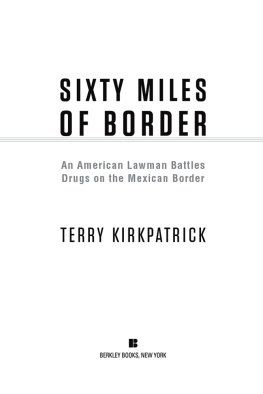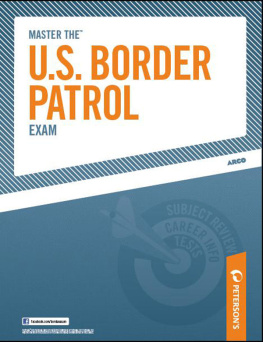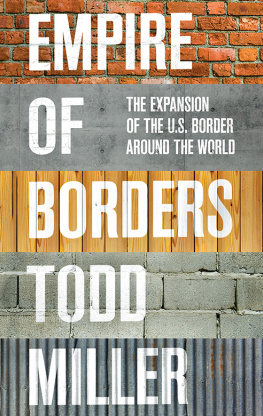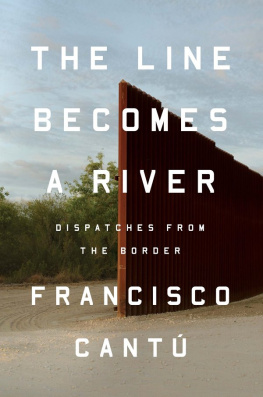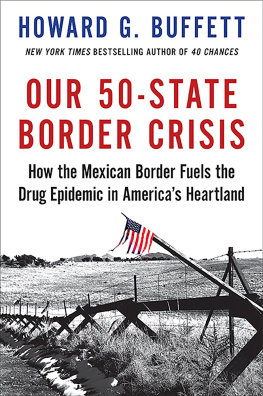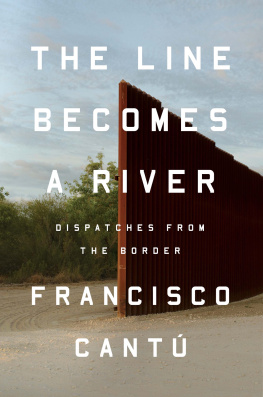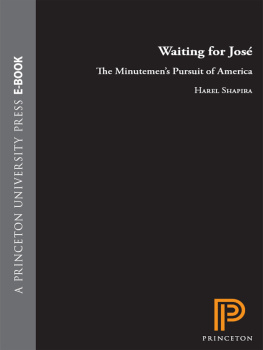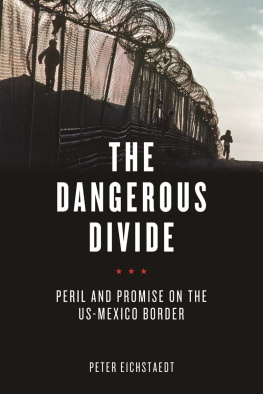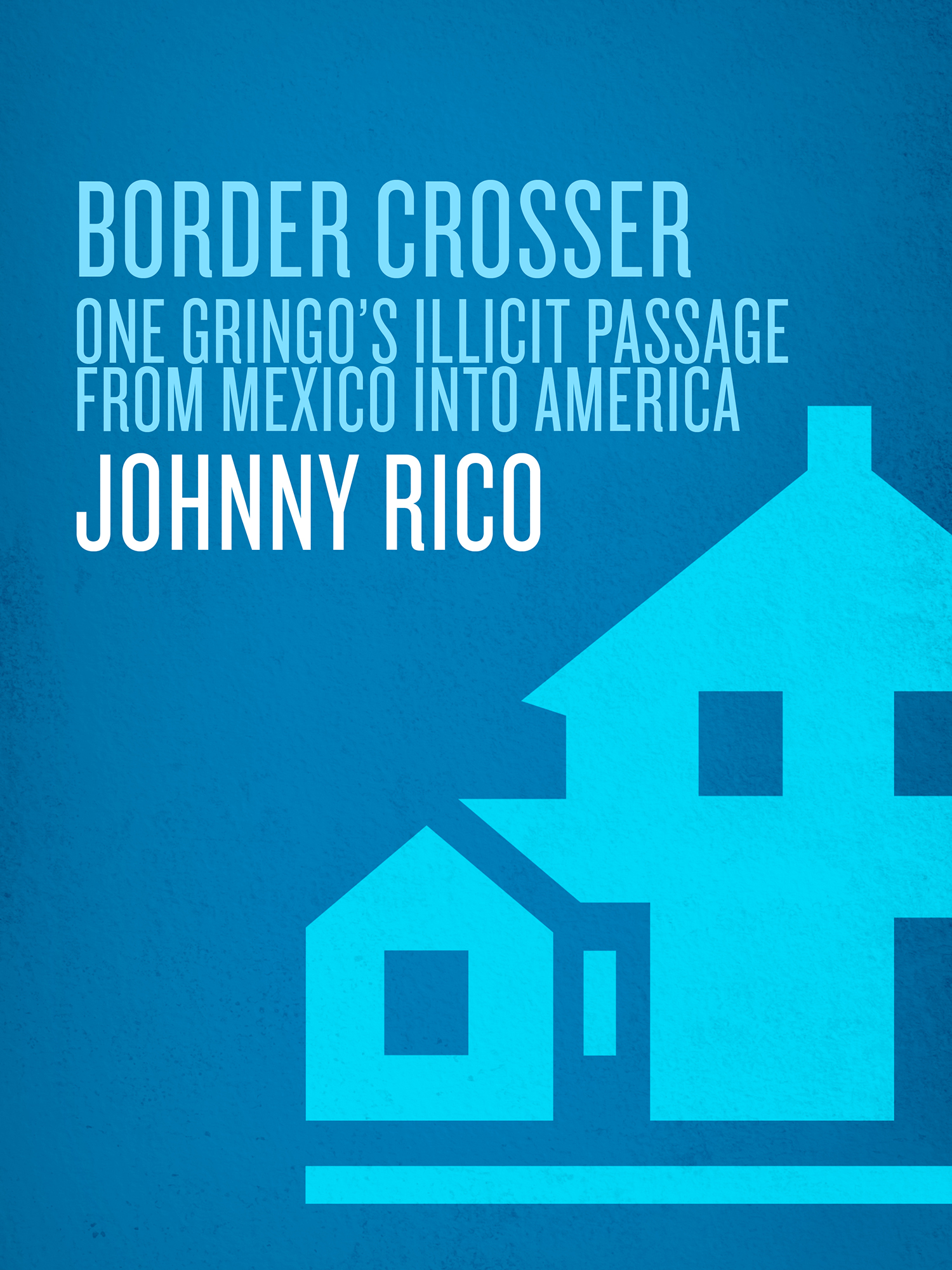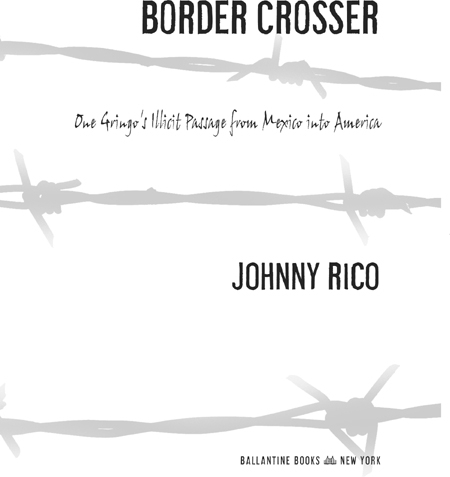3.
8.
14.
16.
20.
25.
FOREWORD AND MEA CULPA
In the summer of 2007, I attempted to cross from Mexico into the United States, not through the formal border crossing checkpoints, but instead using the fields, forests, and mountains that connect Mexico to the United States. It was part of my attempt to greater understand and live the politics of the border. This book a curious hybrid of gonzo journalism and storytelling is a chronicle of my developed understanding and efforts. To this end, I feel compelled to be up-front with my readers regarding some of the more diaphanous literary components necessarily required in the telling of such a tale.
I believe its a journalists duty to lay out the facts and details in clear, unambiguous terms, however rote and monotonous their presentation may be. And its a storytellers duty to transform the messy false starts, errant timing, and awkward pauses of real life to something approaching a readable, cohesive, and hopefully entertaining narrative. While Im sometimes a journalist, as when employed by various magazines, with this work Im a storyteller. And so here is my mea culpa: this work is nonfiction, but with manipulations to time and sequencing, and an economy for setting and character.
For example, in order to compress two months into three hundred pages, theres a necessary molestation of chronology there are 1,440 hours in a two-month period and you cant write about each of them verbatim you have to pick and choose, and in this choice, you inadvertently become an editor, fusing and linking occasionally unrelated moments that are individually important but separated by scenes that arent. Case in point: in real life, I took two trips to the border two months apart. And Patriot Point, as you will later read, was two different visits. But long-winded explanations about sequencing and protracted cutaway scenes to airports dont make for compelling reading, so for the sake of linear storytelling, Ive neatly combined them. Which, really, if you think about it, is the beauty of storytelling: we can transform real life into the way it exists within our memories.
Sometimes setting is important, crucial, in fact, to what someone said or did, and in these moments, Ive tried to leave it unchanged. But there are other times too, when a particularly important piece of dialogue or action occurs in a moment of contextual indifference, where it doesnt really matter when or where it was said, only that it occurred. These are the moments Ive manipulated in my perpetual quest to limit my page count and my subsequent workload.
Additionally, while the words that follow are not fictionalized, they are subject to imperfect memory, conflicting interpretation, and biased perception. I did take notes and have an audio recorder with me, but as is often the case, when the recorder is running, nothing occurs. And then the second the recorder is safely packed away at the bottom of a suitcase, at that unexpected moment when nothing was supposed to happen, thats when everything transpires thereby forcing the author at his first opportunity, often days later, to attempt to remember the conversational nuances. And sometimes you dont realize something was important until you start typing, and thats the real bitch of it, attempting total recall six months after the fact.
As well, many of the names and identifying characteristics of the people and organizations Ive mentioned in the book have been changed. Partly this has been necessitated by those troublesome corporate legal departments that specialize in negating risk regardless of truthfulness, and partly this was done in exchange for information. The individuals and organizations operating on the border have become excessively media-wary and sometimes the only way to access their stories was under a promise of at least an attempted obscurity, however clumsy.
And finally, for the benefit of my reader, dialogue is dutifully restored from real life, where we rely heavily on meaningless statement prefaces (its like, you know, and I was literally, like, uh, you know, um), and transformed into something more competent.
Border Crosser!
Enjoy.
Part One
WELCOME TO AMERICA
It was the spring of 2006 when half a million stormed the streets of downtown Los Angeles waving Mexican, Honduran, and Guatemalan flags in protest of a congressional immigration law that would have made being in the United States illegally a felony.
And then, in a complete about-face, there was Title VI of the Senates Secure Borders, Economic Opportunity and Immigration Reform Act of 2007, a provision that created a class Z exclusively for undocumented workers, granting amnesty to any life-form in the country that met the stringent provision of producing two pieces of identification.
Astute and sensitive observers could feel the Internet vibrate with the faint echo of millions of phantom keystrokes typing as the blogs and message boards on all sides of the issue hummed at a pitched velocity; vitriolic and screaming with anger. Statistics and cobbled evidentiary support were bandied about, flying in every which direction: the undocumented Mexicans were an economic stimulus to the nation no, the undocumented Mexicans were bankrupting the nation.
On the conservative frequencies of talk radio, which was almost the entire bandwidth, they were hopeful that the tide was turning, that the nation and its government were finally taking a stand against illegal immigration, and did you know that more people died at the hands of undocumented aliens than soldiers died each year in Iraq?
The liberals countered that methods were discriminatory, enforcement of laws racist, and what did this say about us as a people, as a nation?
The issue had become a part of our national pulse thick, iron-scented, and coagulated in controversy. Along with terrorism and economic crisis, it was one of the new quintessential American questions of the twenty-first century: what was to be done about the Mexicans?
And how one responded exposed the fault lines of a divided nation.
Chapter 1
MIGRANT MOUNTAIN
(MEXICO SECTOR)
In the Big Rock Candy Mountains, theres a land thats fair and bright
Where the handouts grow on bushes and you sleep out every night
Where the boxcars are all empty and the sun shines every day.
Oh, Im bound to go where there aint no snow
Where the rain dont fall and the wind dont blow
In the Big Rock Candy Mountains.
Big Rock Candy Mountains
I never knew the dark to be filled with so much light.
But as we moved silently and in sequence through the underbrush of the basin, the nighttime sky concealed by the reaching branches that took the form of a camouflaged canopy, the twilight gloom began to percolate and bleed into phantom phosphorescent streaks.
The visibility spectrum was exploding, disassembled into crimson and sapphire shadows that crested across my field of vision, forcing me to stumble.


